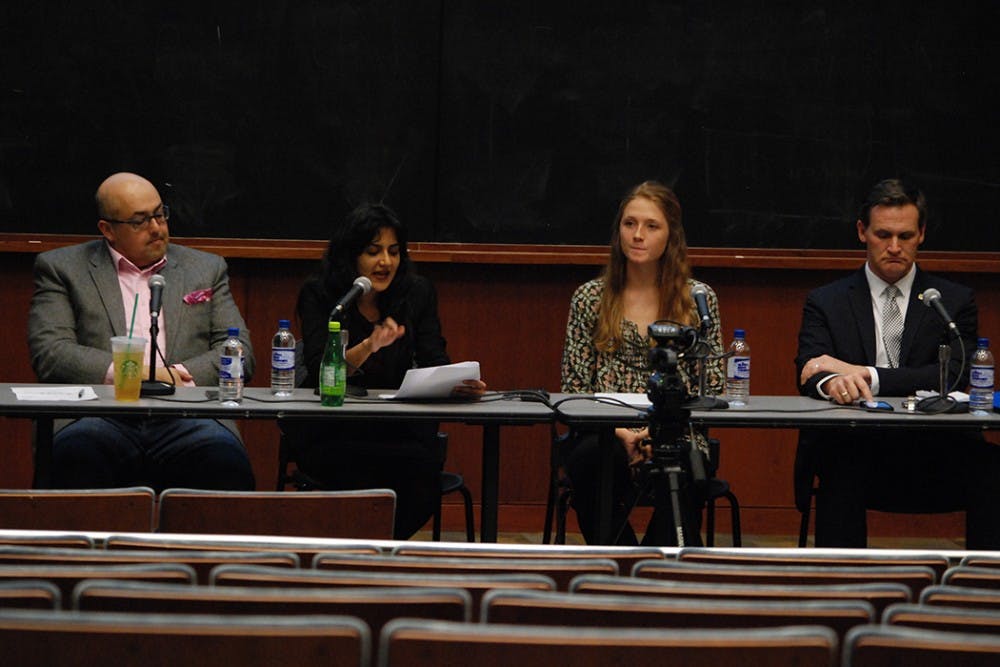The Institute of the Humanities and Global Cultures hosted a panel Wednesday on media, technology, and citizenship.
Four panelists participated in the “Media, Technology, and Citizenship Forum,” which was arranged by Austin Hetrick, an English doctoral candidate and graduate intern for the IHGC.
Hetrick opened the event by commenting on the varied expertise of the panelists — Media Studies Prof. Siva Vaidhyanathan, Charlottesville Mayor Mike Signer, English doctoral candidate Jap-Nanak Makkar and first-year Education student Emma Call.
Vaidhyanathan began by focusing on the willingness of individuals to trust what they find online, especially as online advertising becomes more and more geared toward the specific individual it serves.
“Can we think our way through our problems? Can we engage openly, respectfully … Toward an end that can benefit all of us?” Vaidhyanathan asked. “Trust in institutions across the board has been falling consistently for 20 years … [Yet there is] remarkably high faith in the results of Google searches … That’s the one thing we trust.”
His sentiments were echoed by Makkar, who discussed both the increasing amount and commercialization of information. She, like her fellow panelists, noted the media’s role is multifaceted. To illustrate her point she noted common misconceptions.
“My question would always be is the internet really all that different from other ways we have of communicating?” Makkar said. “[In reality], all of the inequalities we experience in everyday life are replicated on the internet.”
The only undergraduate panelist was a former student of Makkar’s, who voiced her concerns for the growing acceptance of grotesque, “hyper-masculinized” language and behavior in the media.
“I took a class with Jap-Nanak Makkar ... It was Gender and New Media,” Call said. “One of the essays I wrote was on the presidential debate and the portrayal of gender in that and [Makar] thought that would be a good fit for the talk.”
Call’s opening statements centered on a childhood event that sparked her awareness of this graphic, “macho” language, often minimized as “boys being boys.” Like many children, Call first heard vulgar language from her friends and discussed its impact on her as an adult.
“Now rather than hearing it at a game I hear it and see it every day,” Call said.
Call said she voiced concerns of the average college student which were supported by the opinions of experts alongside her on the panel. During his presentation, Signer described the influence of media on his daily life as an elected official.
“[Social media is] collapsing the personal and the public in a way that’s very disorienting,” Signer said.
Signer, like his fellow panelists, said it is ultimately the role of all citizens to ensure active conversations occur to promote change.
“There’s a ton of work to be done,” Signer said in an interview following the event. “I think what this highlighted is the need for depth, debate, deliberation, range, listening, complexity [and] new facts.”







